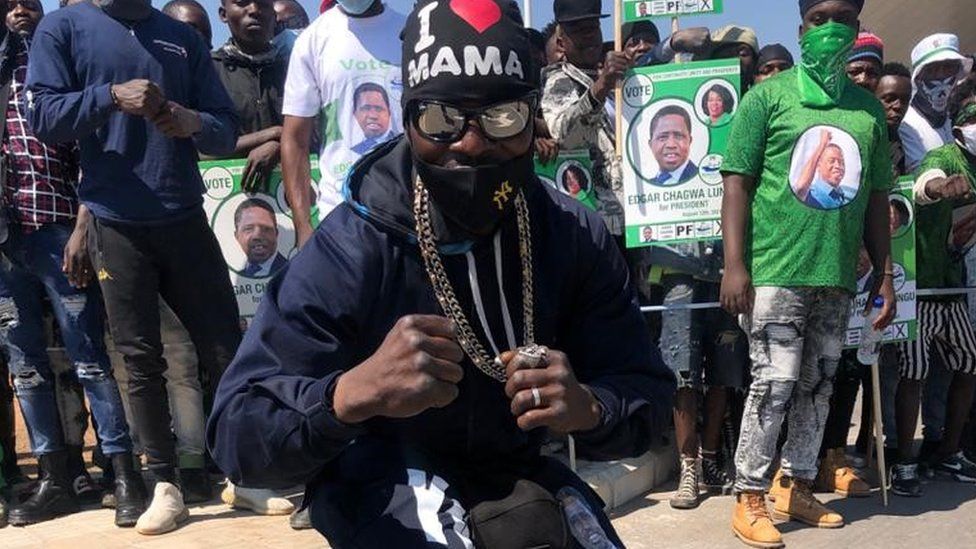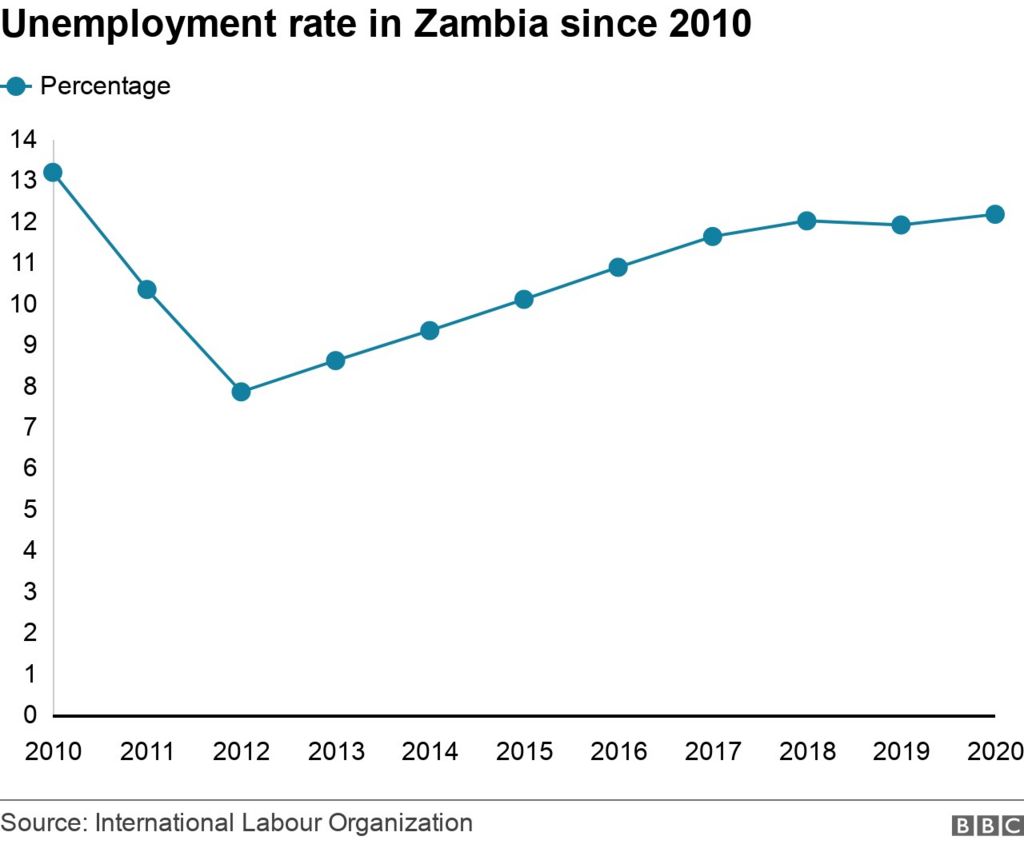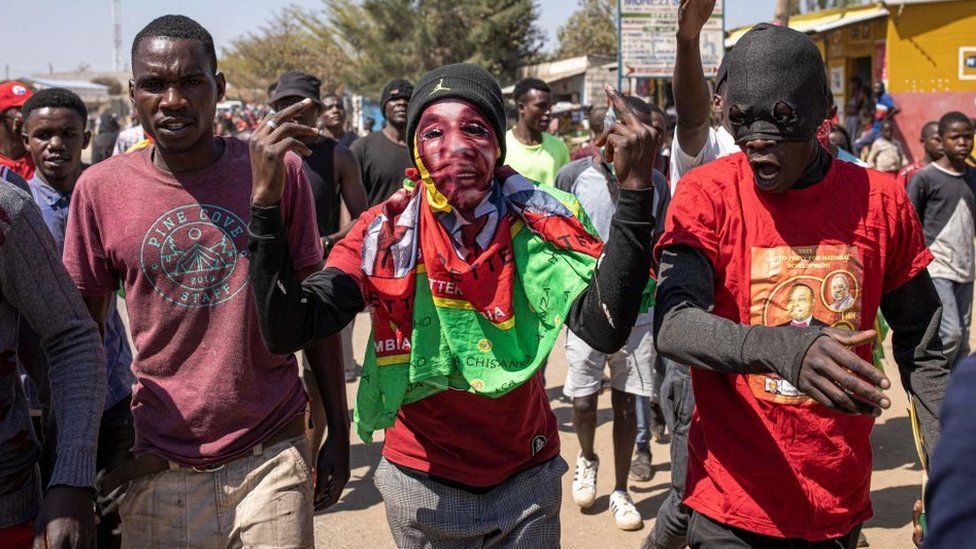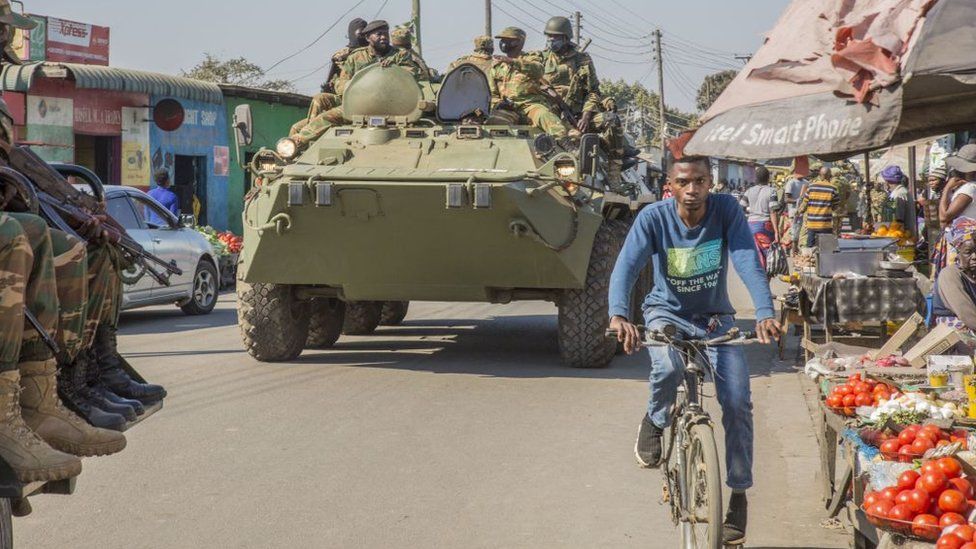Zambia is expected to hold tightly contested presidential and parliamentary elections on Thursday, with many voters – especially the youth – worried about the economic turmoil that has hit the copper-rich nation.
The governing Patriotic Front (PF) swept to power in 2011 on the promise of “less taxes, more money in people’s pockets and more jobs”. It says it has remained true to its pro-poor policies.
“A lot of work has gone into stopping the bleeding of the economy and we are now on the path to recovery,” PF campaign spokesman Amos Chanda said.
But the main opposition United Party for National Development (UPND) says that President Edgar Lungu – who is running for office again – has not met the expectations of Zambians.
The view is supported by University of Zambia political science lecturer Charity Musamba.
“We have had massive abuse of resources, which contributed to the country’s economic problems,” she tells the BBC.

The PF says that during its 10 years in office it has improved the lives of people through its huge drive to expand infrastructure.
It highlights new power stations, schools, hospitals and international airports in Lusaka, the capital, and Ndola, the gateway to the copper-mining region that lies at the heart of Zambia’s economy.
But its critics point out that the economy is in dire straits.
For the first time since 1998, Zambia plunged into a recession last year as the Covid-19 pandemic spread across the globe.
Furthermore, the International Labour Organization (ILO) estimates that unemployment rose to 12.17% in 2020 – the highest since the PF took office in 2011.
For the youth things are even worse, with an estimated one in five without a job. The cost of living has also increased rapidly.

for the money the country owes to foreign lenders, it is estimated to be more than $12bn (£8.6bn).
This means that the government ends up spending at least 30% of its revenue on interest payments, according to credit ratings firm S&P Global.
Last year, Zambia missed an interest repayment, making it the first African country to default on a loan during the pandemic. It is also facing difficulties repaying other loans.
Elections in Zambia are largely influenced by young people, including first-time voters.
‘I am voting for my job’
More than half of the eight million registered voters are under the age of 35. In the past, along with urban dwellers, they have been the bedrock of PF support.
But amid the economic turmoil, Mr Lungu and his party can no longer take their votes for granted.
“I am not voting for anyone in this election – I am voting for my job. I can’t go four years without a job,” says Silvia Mutila, a 25-year-old unemployed nurse who graduated in 2017.
Despite the shortage of crucial personnel in the education and health sectors, Zambia has more than 50,000 teachers, 17,000 nurses and 500 doctors who are unemployed.
The government is busy creating 650 health posts using a loan obtained from the EXIM Bank of India, however, while a number of hospitals are being constructed with loans from other lenders.
And the economy is predicted to grow by about 1.5% this year, buoyed by rising copper prices, a good harvest and improved power generation capacity.

The opposition UPND and its presidential candidate – wealthy businessman Hakainde Hichilema – are expected to maintain their power bases in Southern Province, Western Province and mineral-rich North-Western Province. It is there that residents repeatedly complain of a lack of economic development despite booming mines.
Others believe the opposition Socialist Party – which is contesting its first election following its launch in 2018 – has made in-roads in Western Province. This is where journalist-turned-politician, Fred M’membe, spent his childhood and has mounted a vigorous campaign.
He is tipped to also eat into UPND’s support base in North-Western Province, but Lusaka-based economist, Oliver Saasa, says he does not expect any major changes in voting patterns in the mainly rural strongholds of the two big parties.
“What’s going to be the key determinant is the cosmopolitan urban regions, where the mostly middle class will vote on the basis of their current situation,” he adds.
‘Journalists and activists targeted’
President Lungu has been accused of showing authoritarian streaks in the face of a strong challenge by Mr Hichilema, who has failed on five previous occasions to win the presidency.
In June, Amnesty International released a report entitled Ruling by Fear and Repression.
“Opposition leaders, journalists, media houses and activists have all been targeted, and speaking out against allegations of government corruption or abuse has become more dangerous.,” Amnesty said.
It also alleged that lethal force had sometimes been used to break up protests.
Mr Hichilema’s campaign team say that the security forces have heavily restricted his efforts to mobilise support, while President Lungu and his running mate, microbiologist Nkandu Luo, have been traversing Zambia freely.

Earlier this month, Mr Lungu ordered the deployment of the military to parts of Lusaka, following the killing of two PF supporters in clashes with UPND supporters in the city’s sprawling Kanyama Compound late last month.
The opposition criticised the deployment, saying it could intimidate voters.
The PF’s Mr Chanda says the government wants to ensure the election is peaceful, and law enforcement operations cannot be characterised as brutal or intimidatory.
The election is being closely watched by foreign governments – including the US.
In a statement, its embassy in Lusaka said those who promote violence or undermine the election will be held accountable.
“Shun violence. Support the democratic process,” its statement added.
Zambians are hoping that their politicians will heed the advice, rather than risk the stability of the country at a time when there is a desperate need to bring down unemployment and inflation.
BBC



